Assyrian Lawyer Oliver Sliwa Awarded By Global Peace Chain
 Sydney -- In the presence of over 100 international delegates from 80 countries worldwide, Syriac-Assyrian lawyer Oliver Sliwa from Sydney, Australia, was awarded by the Global Peace Chain at its Global Peace Summit: Sydney 2025 in recognition of his efforts in the fields of peace and humanitarian law.
Sydney -- In the presence of over 100 international delegates from 80 countries worldwide, Syriac-Assyrian lawyer Oliver Sliwa from Sydney, Australia, was awarded by the Global Peace Chain at its Global Peace Summit: Sydney 2025 in recognition of his efforts in the fields of peace and humanitarian law.

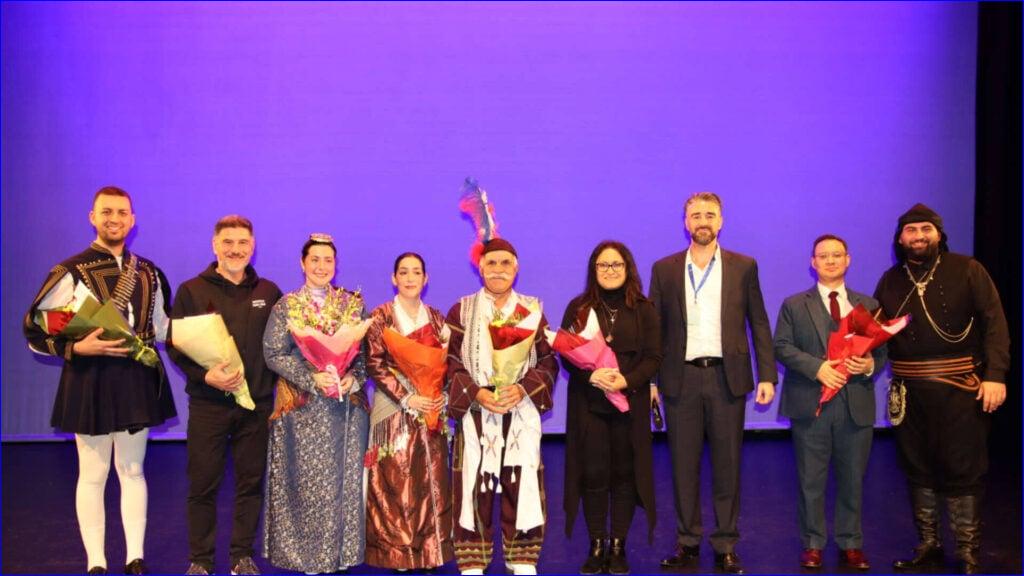 A full house at the Clocktower Centre gathered on 29 June for Alexander's Journey, a dramatic oratorio written by Dean Kalimniou and staged by the Pan-Macedonian Association of Melbourne under the direction of its President, Peter Stefanidis. Among the attendees were community dignitaries, including Bishop Evmenios of Chora.
A full house at the Clocktower Centre gathered on 29 June for Alexander's Journey, a dramatic oratorio written by Dean Kalimniou and staged by the Pan-Macedonian Association of Melbourne under the direction of its President, Peter Stefanidis. Among the attendees were community dignitaries, including Bishop Evmenios of Chora.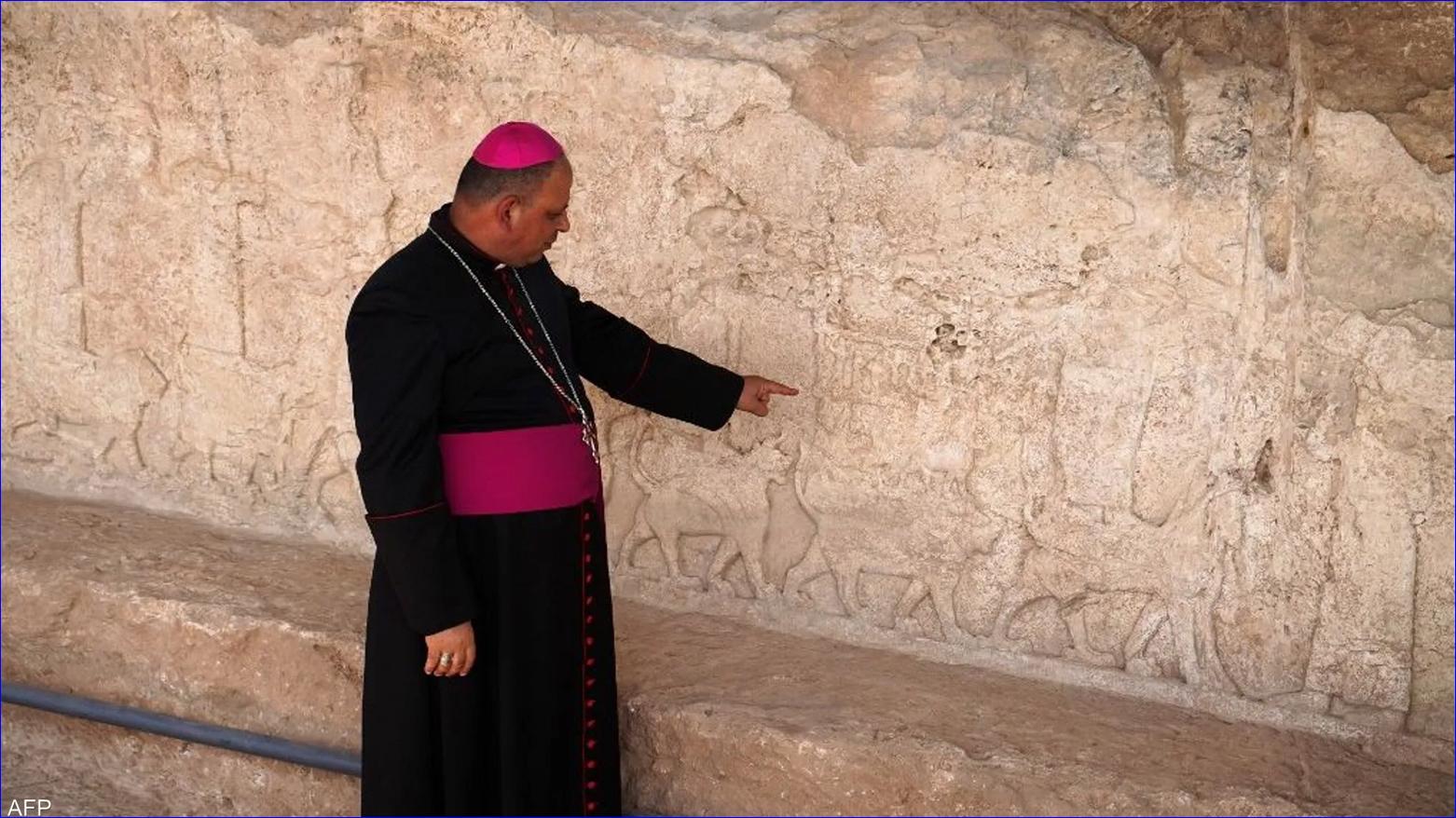 Nestled in the Semel district of Duhok province, the Faida Archaeological Park stands as a testament to millennia of human ingenuity and civilization. Dating back to approximately 2700 BC and spanning more than 102 hectares, the site is considered one of the most historically significant landmarks in the Kurdistan Region.
Nestled in the Semel district of Duhok province, the Faida Archaeological Park stands as a testament to millennia of human ingenuity and civilization. Dating back to approximately 2700 BC and spanning more than 102 hectares, the site is considered one of the most historically significant landmarks in the Kurdistan Region.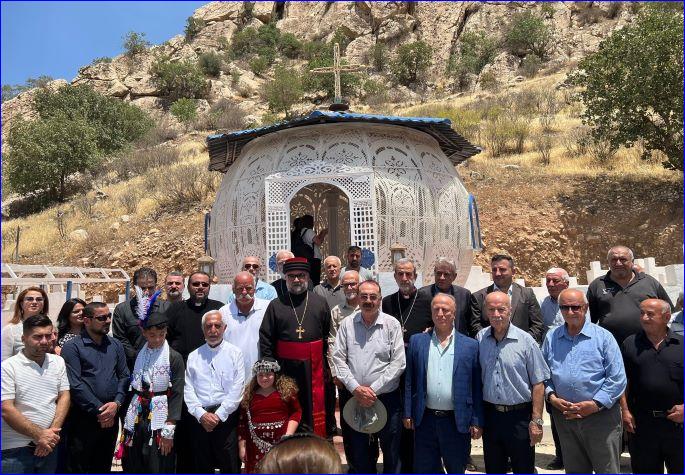 Under the slogan "Our Land, Our Existence," member of the Executive Office of the Bethnahrin Patriotic Union Gabriel Chamoun, participated, along with comrade Rudy Kabriel, in the opening of the Mar Qyama Shrine and a Syriac library in the village of Dahi in the Amadiya District of Nohadra (Duhok).
Under the slogan "Our Land, Our Existence," member of the Executive Office of the Bethnahrin Patriotic Union Gabriel Chamoun, participated, along with comrade Rudy Kabriel, in the opening of the Mar Qyama Shrine and a Syriac library in the village of Dahi in the Amadiya District of Nohadra (Duhok).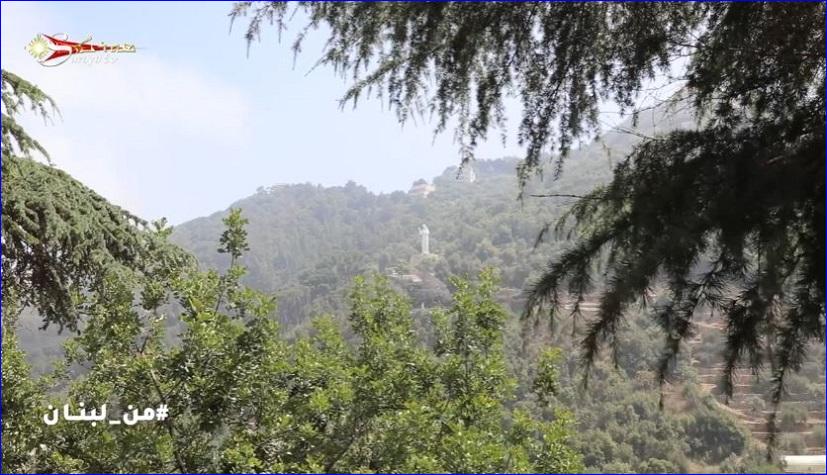 GHOSTA, LEBANON -- The town of Ghosta lies some 950 meters above sea level in Mount Lebanon Governate. In modern times it was the hometown of painter Daoud Corm (1852-1930), journalist and founder of Lebanon's news agency Philippe Ziadeh (1909-2005), and final resting place for Jocelyne Khoueiry.
GHOSTA, LEBANON -- The town of Ghosta lies some 950 meters above sea level in Mount Lebanon Governate. In modern times it was the hometown of painter Daoud Corm (1852-1930), journalist and founder of Lebanon's news agency Philippe Ziadeh (1909-2005), and final resting place for Jocelyne Khoueiry.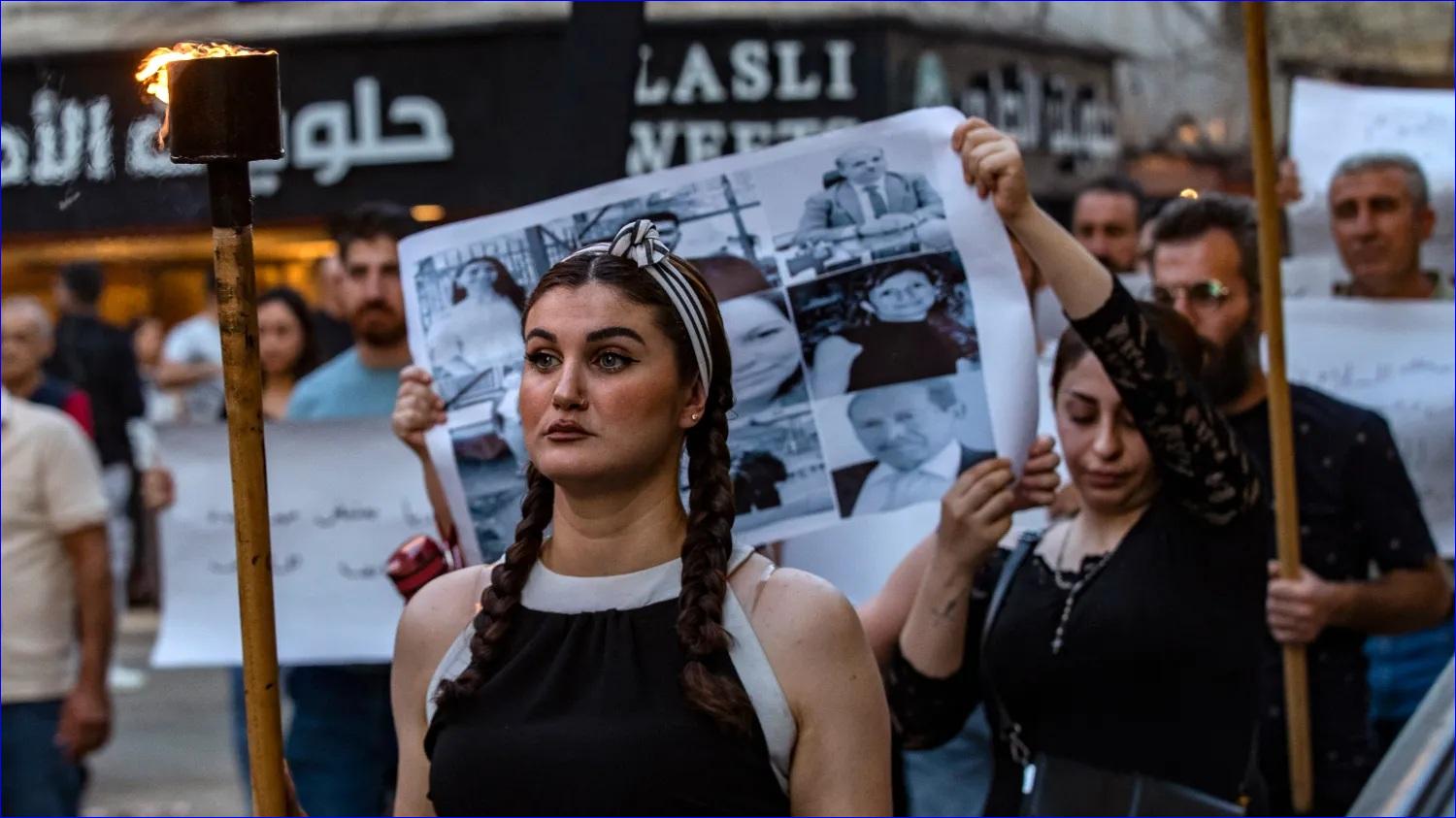 Evening mass had just begun when the suicide bomber attempted to rush through the doors of the Saint Elias Greek Orthodox church in Damascus, an AK-47 in his hand. Three young men from the congregation ran towards him, wrestling with the assailant as he jostled forward into the atrium, while a second assailant sprayed the church exterior with bullets.
Evening mass had just begun when the suicide bomber attempted to rush through the doors of the Saint Elias Greek Orthodox church in Damascus, an AK-47 in his hand. Three young men from the congregation ran towards him, wrestling with the assailant as he jostled forward into the atrium, while a second assailant sprayed the church exterior with bullets. Chicago -- The Illinois State Board of Education (ISBE) has officially approved the inclusion of the Assyrian Genocide after meeting the State's Social Science Standards, marking a significant step towards broader historical education in Illinois schools.
Chicago -- The Illinois State Board of Education (ISBE) has officially approved the inclusion of the Assyrian Genocide after meeting the State's Social Science Standards, marking a significant step towards broader historical education in Illinois schools. The so-called "12-Day War" has also caused concern and fear in Iraq. This was confirmed by the Patriarch of the Chaldean Church, Cardinal Louis Raphael Sako, in a brief interview with Fides. The Iraqi Cardinal sees recent events as a further sign of the crisis in the international order.
The so-called "12-Day War" has also caused concern and fear in Iraq. This was confirmed by the Patriarch of the Chaldean Church, Cardinal Louis Raphael Sako, in a brief interview with Fides. The Iraqi Cardinal sees recent events as a further sign of the crisis in the international order.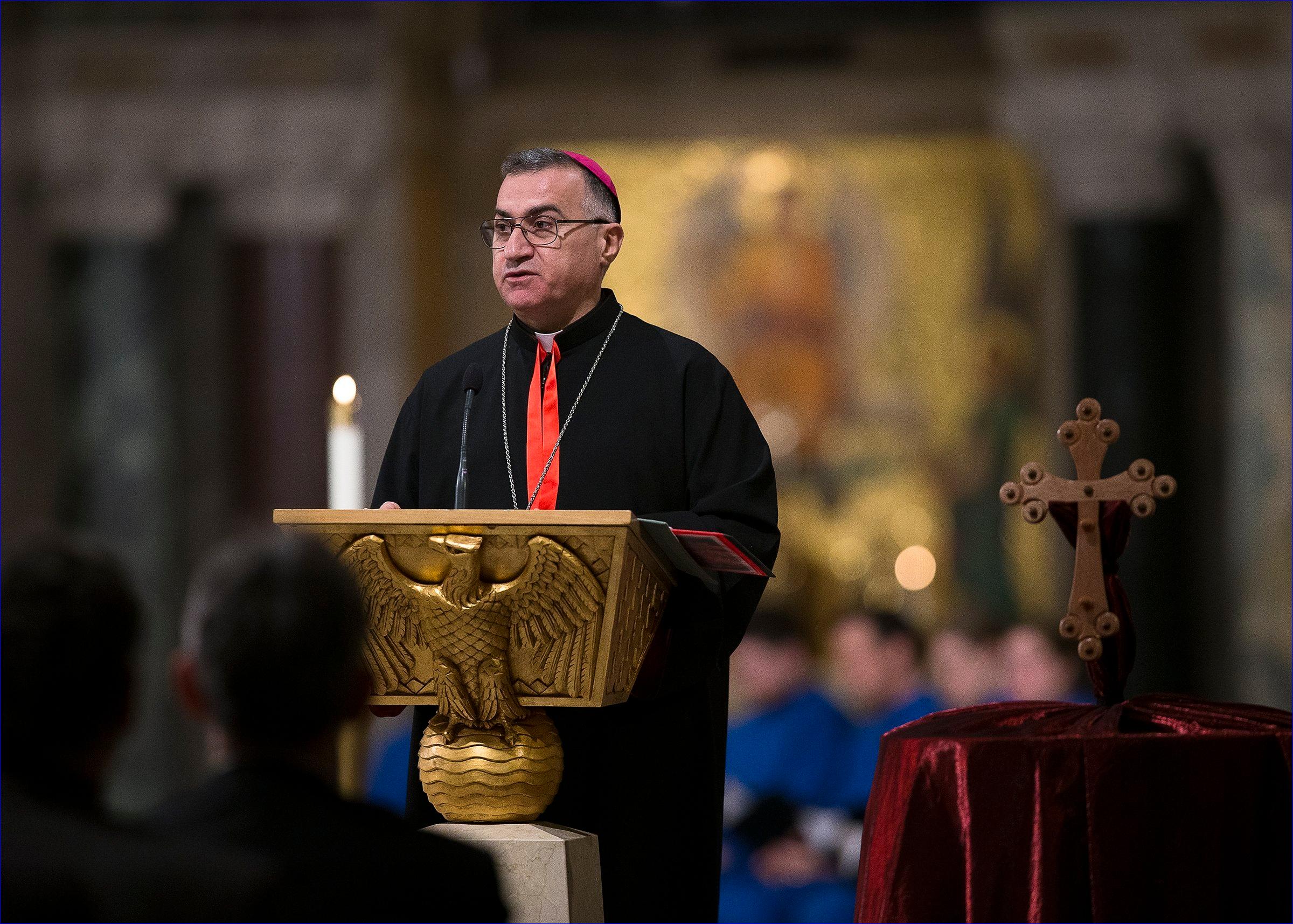 A Chaldean archbishop told OSV News June 23 that he has been unable to contact his fellow bishop in Iran, following recent strikes by the U.S. and Israel on various sites in that nation. Chaldean Catholic Archbishop Bashar M. Warda of Irbil, Iraq, said he has been attempting to call fellow Chaldean Catholic Archbishop Imad Khoshabeh of Tehran over the past few days, but without success.
A Chaldean archbishop told OSV News June 23 that he has been unable to contact his fellow bishop in Iran, following recent strikes by the U.S. and Israel on various sites in that nation. Chaldean Catholic Archbishop Bashar M. Warda of Irbil, Iraq, said he has been attempting to call fellow Chaldean Catholic Archbishop Imad Khoshabeh of Tehran over the past few days, but without success.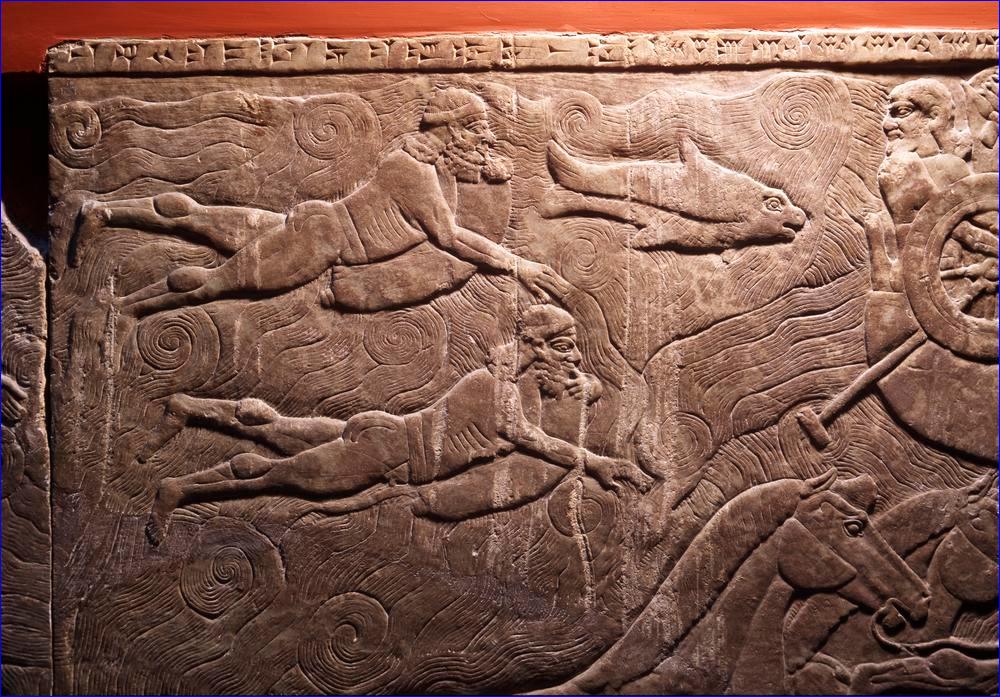 This carved relief from Nimrud, a major city of the ancient Assyrian Empire in present-day Iraq, regularly drifts around the internet as purported evidence for scuba diving nearly 3,000 years ago. But the wall panel actually depicts an army crossing a river, and soldiers are navigating the waves with the help of ancient flotation devices.
This carved relief from Nimrud, a major city of the ancient Assyrian Empire in present-day Iraq, regularly drifts around the internet as purported evidence for scuba diving nearly 3,000 years ago. But the wall panel actually depicts an army crossing a river, and soldiers are navigating the waves with the help of ancient flotation devices. A suicide bombing by Islamic State (IS) targeting a church in Damascus has killed 20 people and wounded 52, Syrian authorities have said. The attack on Sunday night was the first major IS operation and the first suicide bombing in Syria since former Syrian president Bashar al-Assad was toppled in December and replaced by an Islamist-led government.
A suicide bombing by Islamic State (IS) targeting a church in Damascus has killed 20 people and wounded 52, Syrian authorities have said. The attack on Sunday night was the first major IS operation and the first suicide bombing in Syria since former Syrian president Bashar al-Assad was toppled in December and replaced by an Islamist-led government.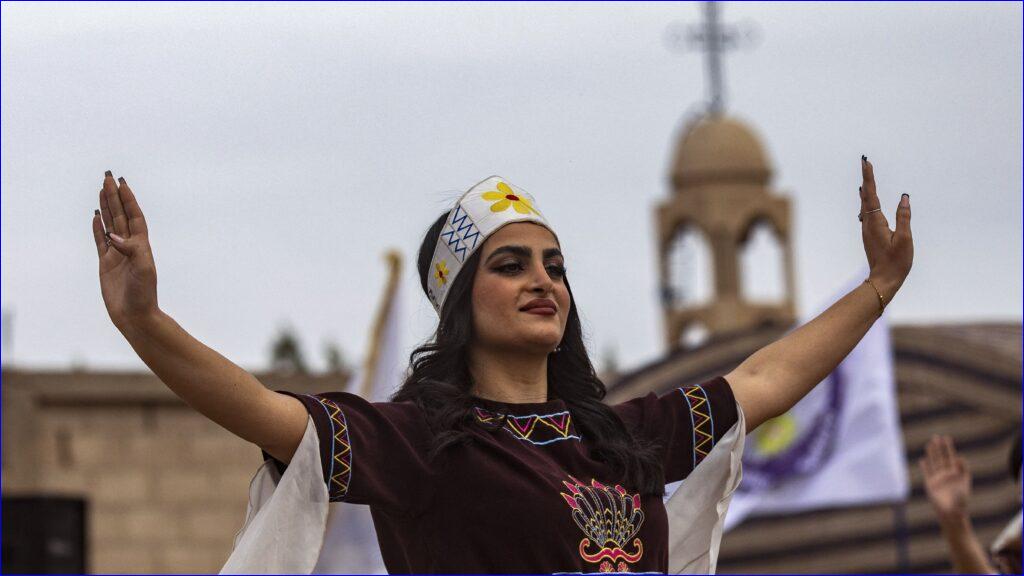 On June 13th and 14th, an international conference titled '1915-2025: 110 Years Since the Assyrian Genocide' was held in Athens. Many genocide scholars and historians spoke regarding the causes and consequences of the genocide, as well as how its denial by Turkey still affects Turkish politics, amongst other topics.
On June 13th and 14th, an international conference titled '1915-2025: 110 Years Since the Assyrian Genocide' was held in Athens. Many genocide scholars and historians spoke regarding the causes and consequences of the genocide, as well as how its denial by Turkey still affects Turkish politics, amongst other topics.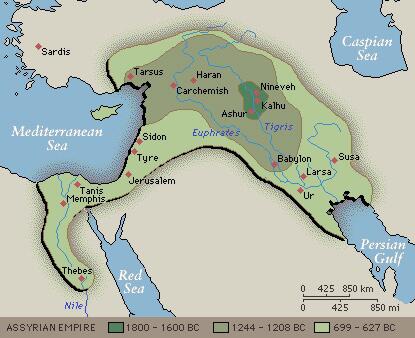 (AINA) -- Amir Harrak, Professor of Aramaic and Syriac at the Department of Near and Middle Eastern Civilizations, University of Toronto, delivered a lecture on the history of Assyrians after the fall of Nineveh in 612 BC, covering the period up to the 12th century AD. ...
(AINA) -- Amir Harrak, Professor of Aramaic and Syriac at the Department of Near and Middle Eastern Civilizations, University of Toronto, delivered a lecture on the history of Assyrians after the fall of Nineveh in 612 BC, covering the period up to the 12th century AD. ... (AINA) -- The Assyrian Arts Institute (AAI) is an organization founded by Nora Betyousef Lacey in 2017 and claims to support Assyrian arts. AAI has sponsored a few events since its founding, including an Assyrian women's choir.
(AINA) -- The Assyrian Arts Institute (AAI) is an organization founded by Nora Betyousef Lacey in 2017 and claims to support Assyrian arts. AAI has sponsored a few events since its founding, including an Assyrian women's choir. (AINA) -- On July 12 Iraqi president Abdul Latif Rashid repealed the decree recognizing the appointment of Cardinal Louis Raphael Sako as head of the Chaldean Catholic Church and which appointed him to the office of the waqf (وقف), the endowment which oversees all church property. The details of the events leading up to this action are exhaustively covered in this report by MEMRI.
(AINA) -- On July 12 Iraqi president Abdul Latif Rashid repealed the decree recognizing the appointment of Cardinal Louis Raphael Sako as head of the Chaldean Catholic Church and which appointed him to the office of the waqf (وقف), the endowment which oversees all church property. The details of the events leading up to this action are exhaustively covered in this report by MEMRI.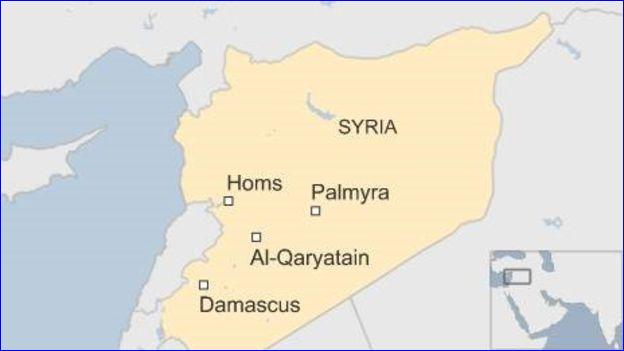 (AINA) -- 'Syria is free'; thus screamed the Syrians as they celebrated the tumbling down of the criminal regime during a whole week. Thousands, even millions, of Syrians strolled the streets of the entire major cities of Syria. They were from all societal segments, strata, trends, genders, religious beliefs and non-religious ones, convictions, sects, confessions, parties, and orientations.
(AINA) -- 'Syria is free'; thus screamed the Syrians as they celebrated the tumbling down of the criminal regime during a whole week. Thousands, even millions, of Syrians strolled the streets of the entire major cities of Syria. They were from all societal segments, strata, trends, genders, religious beliefs and non-religious ones, convictions, sects, confessions, parties, and orientations.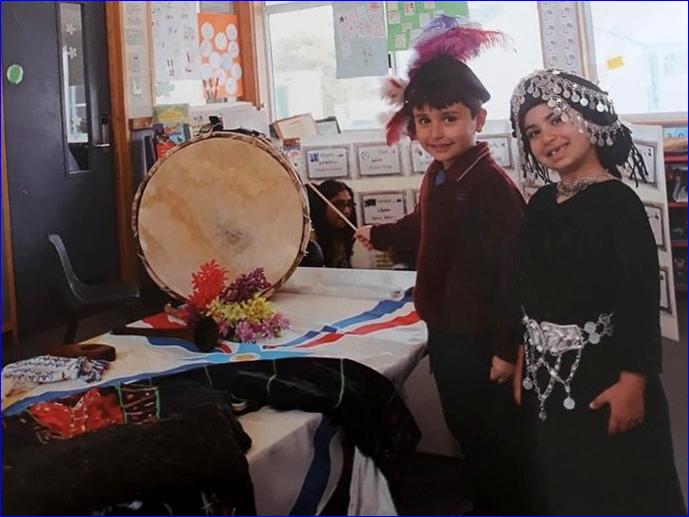 (AINA) -- The collapse of the Syrian regime has added yet another chapter to the cycle of deep crises that perpetually plague the Middle East. Yet, these devastations increasingly render ancient peoples, burdened by the weight of historical memory, invisible.
(AINA) -- The collapse of the Syrian regime has added yet another chapter to the cycle of deep crises that perpetually plague the Middle East. Yet, these devastations increasingly render ancient peoples, burdened by the weight of historical memory, invisible.